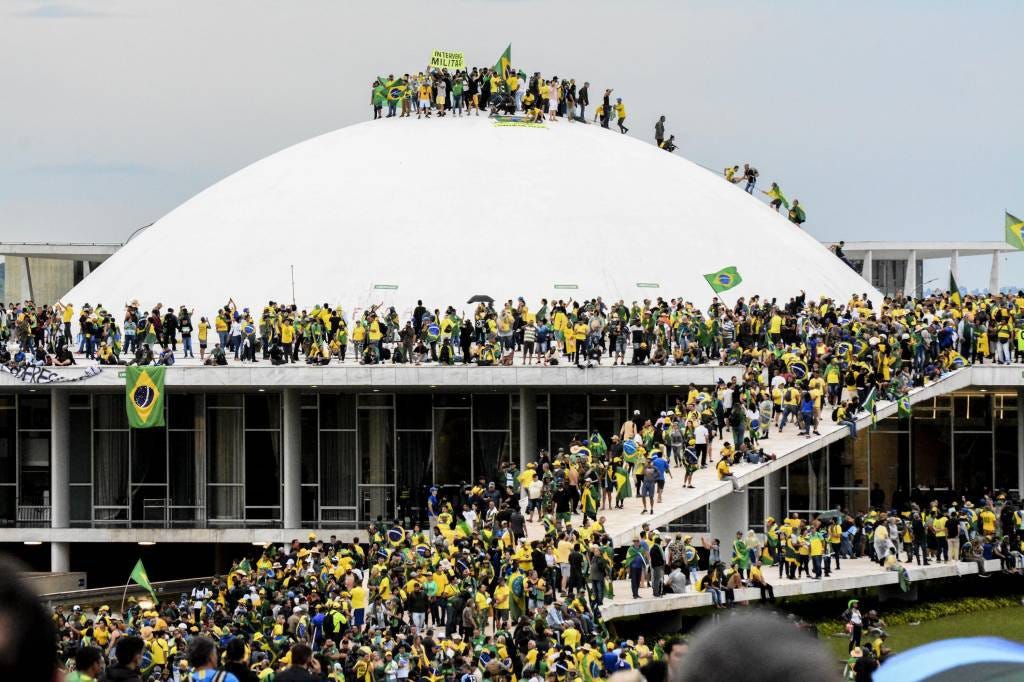January 6 vs. 8 de Janeiro
Connecting the Capitol invasion and the events in Brazil
Yesterday was a day to be remembered in Brazilian history.
A large group of protesters invaded the three main buildings of the Executive, the Legislative and the Judiciary in Brasilia: the Palácio do Planalto, the Congress and the Supreme Court.
The group supports the former president Bolsonaro, and claims that the election was stolen and calling for a military coup. We’re still learning the full extent and the implications of the attack. The Governor of Brasília had its powers suspended for 90 days and is under investigation for being potentially complicit or complacent.
It’s difficult not to remember the invasion of the Capitol on the US on January 6, 2021. More than an attack on a particular candidate, it’s an attack to the State.
Which brings me back to a book I’ve been reading: The Network State by Balaji Srinivasan.
Part of Balaji’s thesis is that the State substituted God as the ultimate power structure organizing the society. And the Network is rising as a potential to disrupt the State.
Before diving into this, let me make clear that I think these protesters are utterly stupid and represent some of the most despicable groups in the Brazilian society. However, I want to highlight the underlying conflict that is taking place.
When the State is attacked, the upstream powers that support the State (in the case of both Brazil and the US, the mainstream media) and its representatives come to defend it.
There are no reports of injuries, only vandalism. However, the media in Brazil started calling the protesters “terrorists” in unison.
We’ve seen many protests over the years, some of them ending with deaths. I can’t recall the media broadly calling protesters terrorists, even when a cameraman was killed.
What’s different this time?
This is a clear attack on the State as a whole. In a sense, those buildings are like cathedrals, the physical representation of the State power.
As it happened in the US, I expect a big backlash from the events that took place yesterday. The State won’t let any Network movement defy its power with impunity.



So is the biggest enemy of the networked state the current state?
And if so, is the networked state like a kind of anarchist movement?
And in that case, the only way for a networked state to work is to convert a large number of people to its values, following the motto of "the state must fear its people"
(Real questions, I haven't read the book yet)